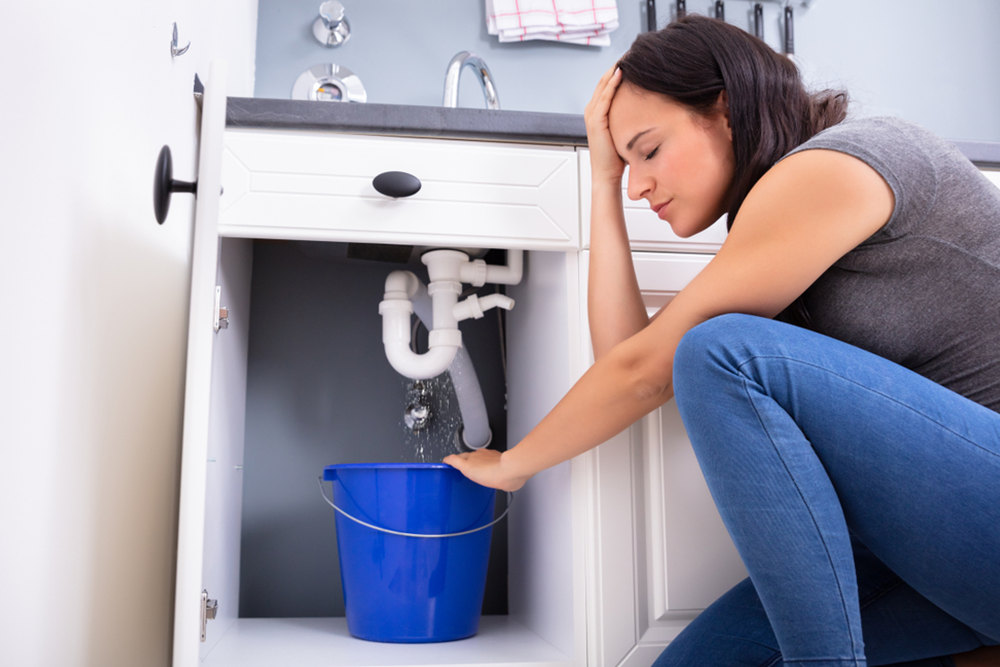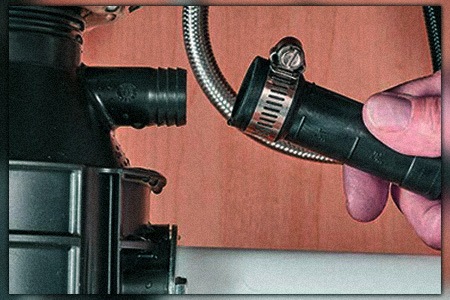This article down below on the subject of Why Is is really captivating. Don't bypass it.

Garbage disposals are essential kitchen home appliances that assist in taking care of food waste successfully. Nonetheless, a dripping waste disposal unit can be an irritating and unpleasant trouble to manage. Fortunately, lots of leaks can be taken care of quickly with a couple of easy steps. In this write-up, we will certainly discuss just how to repair a dripping waste disposal unit efficiently.
Intro
Garbage disposals are mounted under kitchen sinks and are made to shred food waste right into smaller sized items, allowing it to go through the plumbing system quickly. While these tools are generally trustworthy, leakages can take place over time due to deterioration, loose connections, or damage to the unit.
Common Causes of Leaks in Waste Disposals
Worn Seals and Gaskets
Seals and gaskets play an essential duty in stopping water from leaking out of the waste disposal unit. With time, these components can weaken, leading to leakages around the disposal unit.
Loose Links
The connections in between the garbage disposal and the plumbing system can end up being loosened gradually, causing water to leakage out throughout operation.
Splits or Holes in the Disposal System
Physical damage to the waste disposal unit, such as cracks or openings in the real estate, can also result in leakages.
Identifying the Resource of the Leakage
Prior to trying to fix a leaking waste disposal unit, it is necessary to determine the source of the leak. This can usually be done via aesthetic examination or by conducting basic examinations.
Visual Inspection
Inspect the garbage disposal unit carefully for any signs of water leakage. Pay attention to locations around seals, gaskets, and connection points.
Checking for Leaks
One means to evaluate for leakages is by running water with the disposal device and checking for any kind of visible indicators of leakage.
Tools and Products Needed for Fixing a Leaking Waste Disposal Unit
Before beginning the fixing process, collect the necessary tools and materials, consisting of a screwdriver, adjustable wrench, plumbing professional's putty, replacement seals or gaskets, and epoxy or patching product for repairing fractures or openings.
Step-by-Step Overview to Dealing With a Dripping Garbage Disposal
Turn Off the Power
Prior to trying any type of repair services, make certain that the power to the waste disposal unit system is turned off to stop the threat of electrical shock.
Find the Leak
Identify the precise area of the leakage and establish the reason.
Tighten Connections
Utilize a wrench to tighten up any kind of loose connections in between the disposal unit and the pipes system.
Change Seals or Gaskets
If the leakage is due to worn seals or gaskets, remove the old parts and change them with brand-new ones.
Patching Fractures or Holes
For fractures or openings in the disposal device, use epoxy or an ideal patching product to secure the broken location.
Evaluating the Waste Disposal Unit After Fixing
When the repair service is full, test the garbage disposal by running water with it to guarantee that the leakage has been resolved.
Preventive Maintenance Tips to Avoid Future Leaks
To stop future leakages, it is essential to perform regular maintenance on your waste disposal unit. This consists of keeping it tidy, staying clear of putting non-food things or hard objects down the disposal, and periodically checking for leaks or other issues.
Conclusion
In conclusion, fixing a leaking garbage disposal is a fairly straightforward procedure that can be completed with standard tools and products. By following the steps detailed in this post and exercising preventive maintenance, you can maintain your garbage disposal in good working condition and avoid expensive repair services in the future.
What to Do About a Leaking Garbage Disposal
A leaking garbage disposal often goes unnoticed until you confront a sopping cabinet, a foul-smelling puddle, or an audible drip-drip-drip from the unit. The fix can be frustrating, too, because the leak can stem from a number of components in the system. Fortunately, with a little sleuthing, you can zero in on the leak and—depending on the exact location—stop the icky oozing and repair the component that caused it. Worst case scenario, if it turns out that the garbage disposal must be replaced, installing a new one is a reasonable do-it-yourself task for those with basic plumbing skills. Read on to keep the cash you’d otherwise hand over to a pro.
Prepare to find the leak
Prior to testing the garbage disposal for leaks, unplug it at the wall outlet and turn off the power from the breaker box to prevent electrical shock. Then insert a watertight sink stopper into your sink drain and wipe the unit dry with a clean cloth. In any handy container, mix a few drops of food coloring into a few cups of water, and pour the dyed water onto the sink stopper to help you locate the leak.
Investigate the source
- the top, where the disposal meets the sink drain
- the side, where the dishwasher hose or main drain pipe connects to the disposal
- or the bottom of the unit
Inspect each of these locations while gliding a light-colored rag over the unit; the dyed water will readily show on the rag and reveal the location of the leak. If a leak isn’t immediately apparent, remove the sink stopper and pour a few more cups of dyed water down the sink drain, then check for leaks again. Leaks near the top of the unit are more likely to show themselves while the sink is plugged, while side and bottom leaks are more noticeable while the sink is unplugged.
The metal sink flange that sits directly inside the sink drain is typically sealed around the top with plumber’s putty (a clay-like sealant) and then secured from under the sink with bolts. If the plumber’s putty deteriorates, or the bolts loosen, the flange can no longer form a watertight seal between the sink drain and the disposal—which could cause a leak at the top of the unit.
To reseal the leaky flange, you must first detach the garbage disposal. Start by loosening the screws securing the main drain pipe to the disposal, then loosen the screws in the metal clamp securing the dishwasher hose to the disposal and detach the drain pipe and dishwasher hose from the disposal. Loosen the screws in the mounting ring that connects the disposal to the metal mounting assembly beneath the sink, then pull down the disposal and carefully set it on a clean, dry surface. Loosen the bolts in the mounting assembly with a wrench, then pull down the mounting assembly and set it near the disposal.

As a keen person who reads about Why Is , I assumed sharing that blog post was a good idea. Enjoyed reading our posting? Please share it. Help others check it out. We take joy in reading our article about Garbage Disposal Leaking From Bottom.
Click Here
Comments on “Rapid Fixes for a Dripping Garbage Disposal”